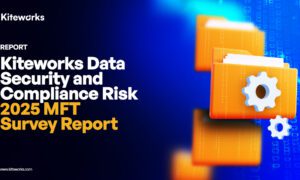In the age of technology and cloud computing, cyber security is more important than ever.
Even as a small business or start-up, you should be concerned about potential cyberattacks. Here’s why:
- Your company data can potentially get stolen
- If financial damage is inflicted, it can be hard to bounce back from
- Customer numbers can dip if your reputation is harmed
So, what should you be doing to keep your business safe and secure when it comes to the internet world?
Simple – just follow the tips and tricks in this article that are specifically for small businesses that might be on a budget and have limited resources.
1. Outsource your cyber security management
Here’s the good news: you don’t have to take care of cyber security all by yourself. For business owners that aren’t tech-savvy, this should be music to your ears.
Instead, all you need to do is outsource your cyber security management to an expert company, such as Haycor Computer Solutions. They’ll protect all of your data from cyber-criminals while providing you with modern security software that will help to detect any suspicious behaviors or threats on your network.
According to Security Magazine, 83% of IT leaders are currently looking to outsource their cyber security to Managed Service Providers (MSPs). This highlights that the future of security in IT is almost certainly going to be based around outsourcing, which is something for you to bear in mind. Obtaining an ISO 27001 certification and partnering up with a 3rd party professional will not only provide you with peace of mind, but it will also assure your clients that their data is in safe hands. In no time, you’ll be cutting-edge secure!
Essentially, it’s best to join the outsourcing trend now before it becomes an industry norm!
2. Train your employees
Whether you employ 5, 10, or 15 employees, it’s a good idea to provide them with training surrounding cyber security.
Online, there are lots of low-cost (and sometimes free) courses and certificate programs for staff to enroll in. Usually, these courses will teach them the basics, from how to identify phishing attempts to what to do if there’s ever a data leak.
3. Only use licensed apps and websites
Nowadays, most businesses are using a variety of apps and websites to get their work done. When you do this, make sure you only choose officially licensed ones with a proven track record in your industry.
For example, if your staff need somewhere to store files and data, then cloud-based apps such as Microsoft OneDrive, Google Cloud Platform, and Dropbox are all great options.
Don’t equip your staff with any applications that aren’t considered valuable within the industry.
4. Use two-factor authentication
Across all your platforms, staff should be encouraged to turn on two-factor authentication in their account settings.
This means that whenever they log into an application – such as their company email accounts – they will be asked to verify their identity via text, email, or phone call.
Fortunately, two-factor authentication makes it very tricky for cyber criminals to hack into innocent people’s accounts.
5. Create a password policy
Lastly, your staff should be given strict instructions regarding their passwords. Ideally, each password should contain:
- A combination of upper and lowercase letters
- Number
- Special characters, such as ‘$’
Also, staff should be instructed to change their passwords around every four months so that you can boost your company’s security measures even further.



































